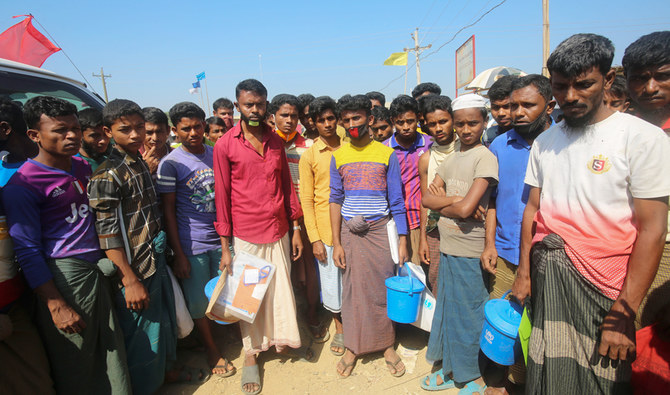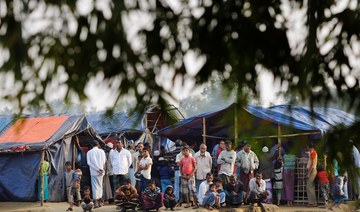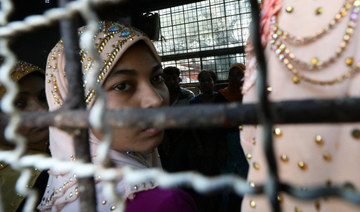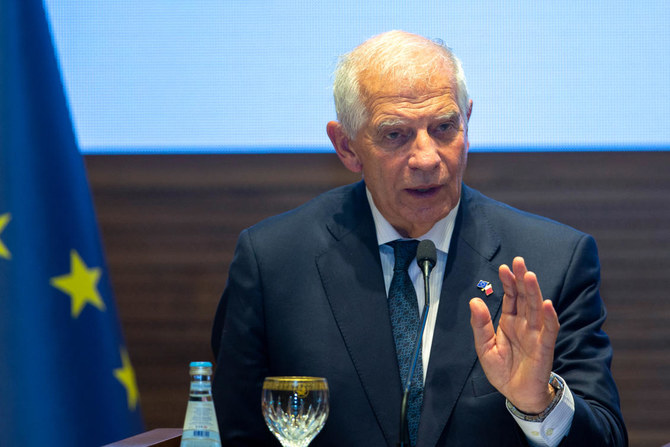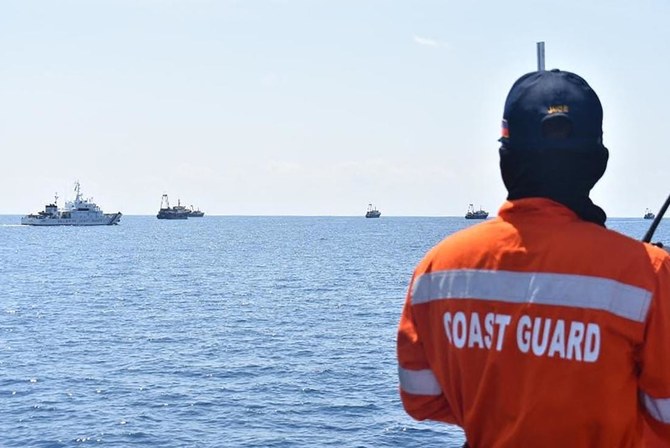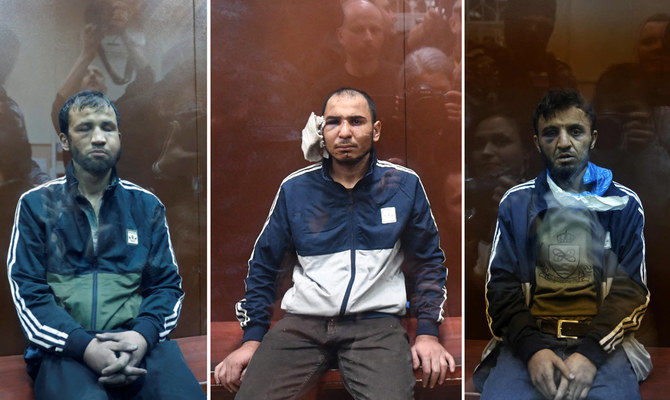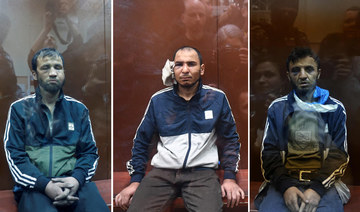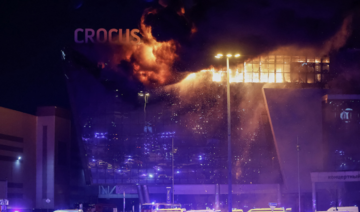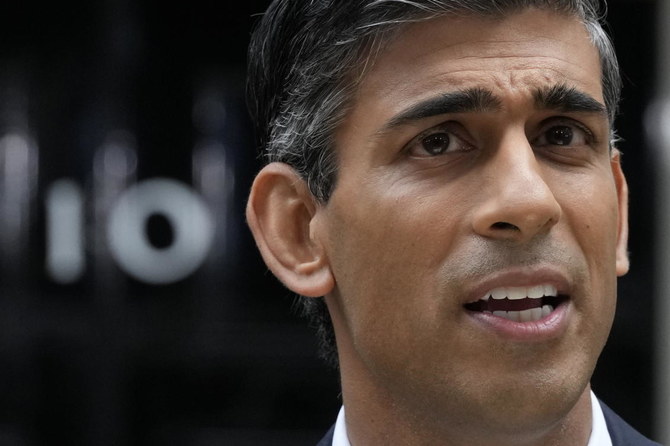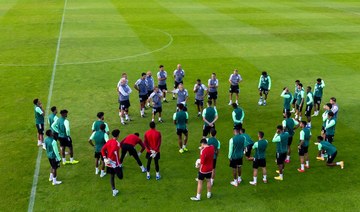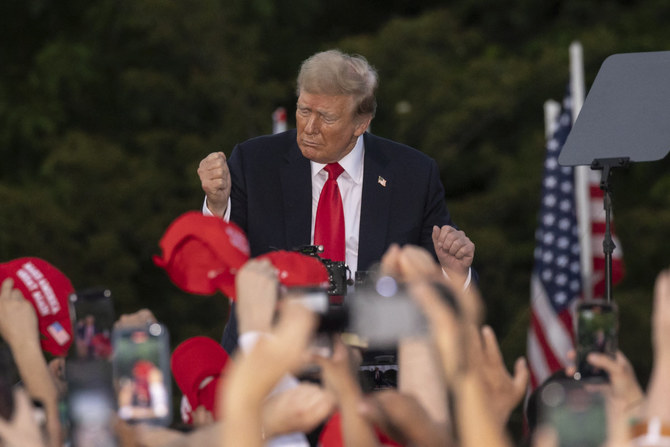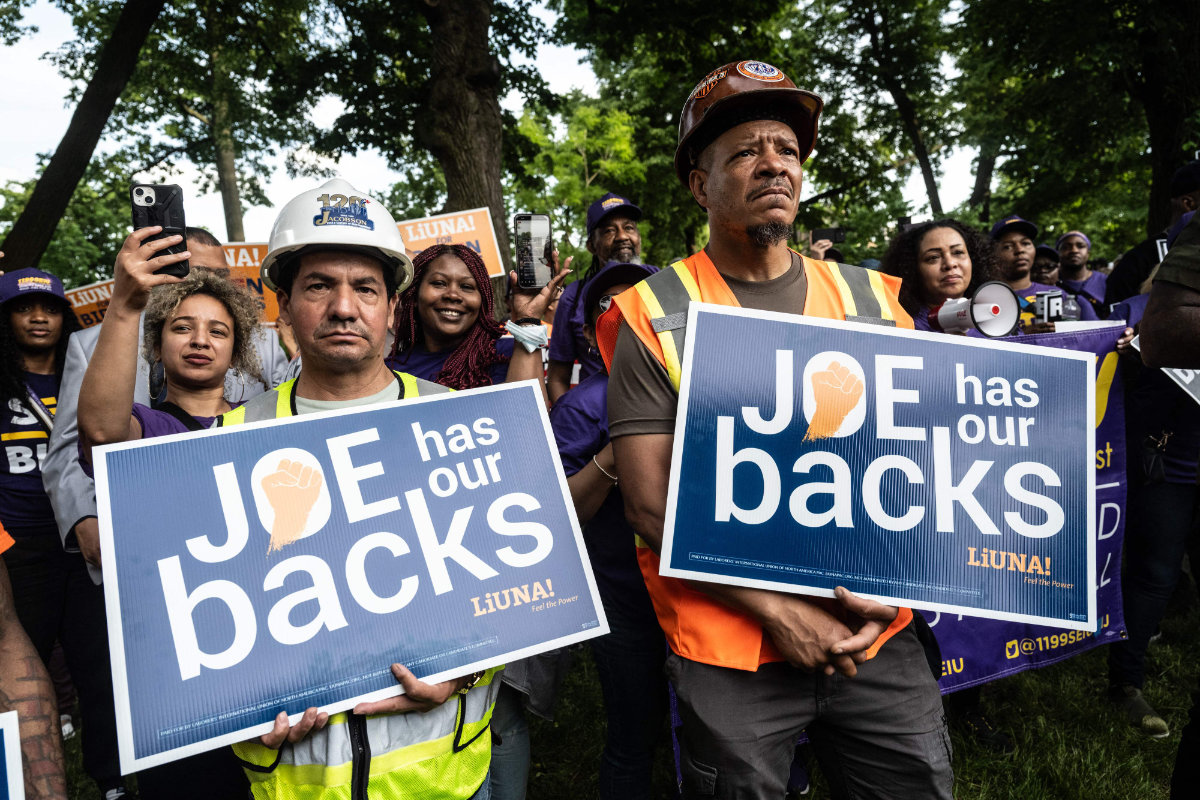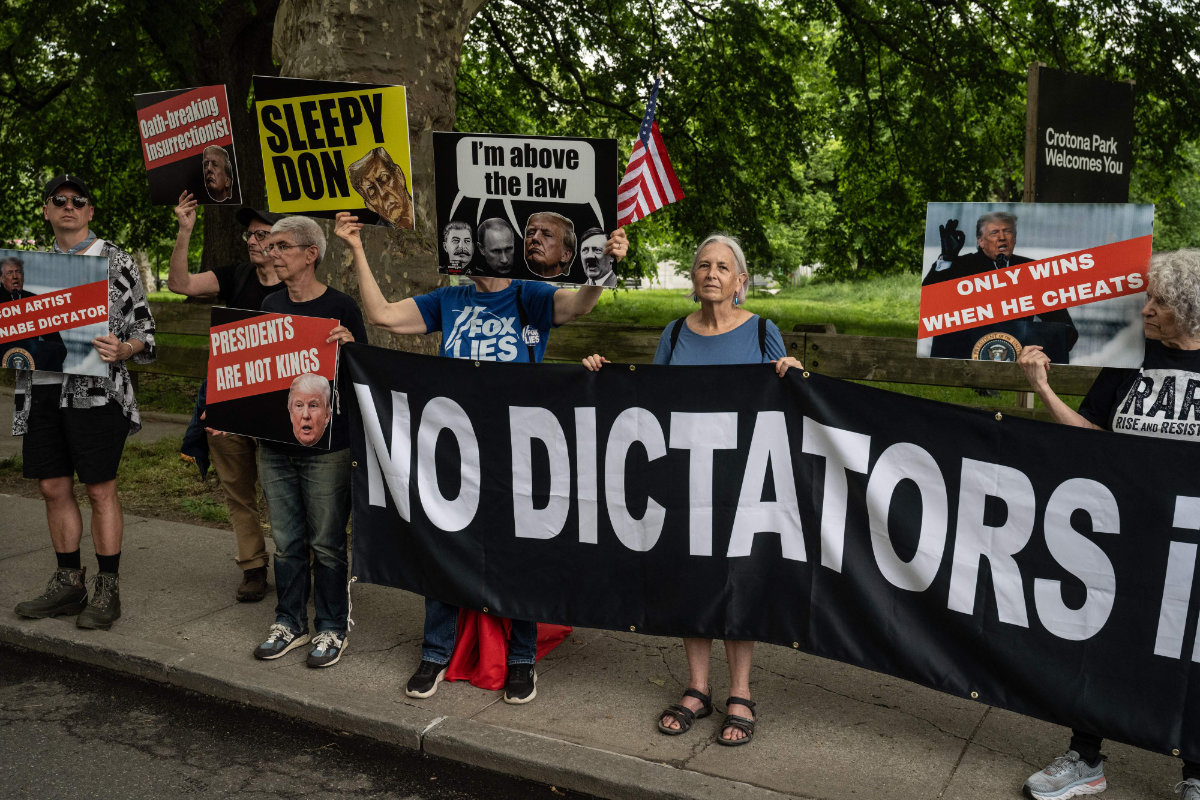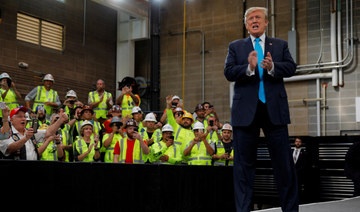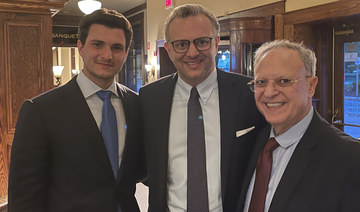NEW DELH: Abul Fiyas and his eight-member family are now dependent on the mercy of NGOs or local villagers to survive.
The majority of the 6,000 Rohingya refugees in India’s northern city of Jammu in the federally administered region of Jammu and Kashmir are in dire straits. Most of them have been on the verge of hunger since India announced a complete lockdown for 21 days on March 24 to contain the escalating cases of coronavirus in the country.
“I was a rickshaw puller and my family’s survival was dependent on my daily earnings, but the lockdown has killed my job,” Fiyas, who came to India from Myanmar in 2014, told Arab News. “If we don’t get support for survival most of the Rohingya refugees will die of hunger first before the coronavirus hits us,” Fiyas said.
Delhi-based 42-year-old Mohammad Tahir, who was surviving on rag picking, is struggling to feed his four-member family. Despite having tuberculosis, Tahir has been able to eke out a living but the lockdown has pushed the whole family into “hunger.”
“The bane of being a Rohingya refugee is that you cannot get any support from the government. You depend on some social groups to help you out. I fear dying of hunger; coronavirus does not scare me,” Tahir told Arab News.
There are about 40,000 Rohingya living in refugee camps in different parts of India with Delhi, Jammu, Nuh in the northern state of Haryana and Hyderabad in southern Telangana being the prominent ones.
Most of them survive on odd jobs, such as rag picking, or as casual workers in the restaurant and construction industries, or as cleaners.
The sudden announcement of the nationwide lockdown has pushed most of them to extreme poverty.
Haryana-based Rohingya activist Mohammad Ali Chand said: “Lockdown might be good, but it has created a huge humanitarian crisis with cases of extreme hunger coming from all the Rohingya camps in India. Last week, some small donations and support from locals have helped us avoid having empty stomachs. But we need urgent help, otherwise if hunger claims some lives it would not be a surprise for us.”
FASTFACT
There are about 40,000 Rohingya living in refugee camps in different parts of India with Delhi, Jammu, Nuh and Hyderabad being the prominent ones.
The greatest fear among activists is the consequences of the coronavirus infecting the refugee camps.
About 100 km southwest of Delhi is a place called Nuh in the neighboring state of Haryana, where more than 400 Rohingya families live. Most of them do not use any kind of soap.
Jafar Ullah, a private tutor in Nuh, said that “soap is a luxury for the refugees.” “People are more worried about hunger than corona. Most of the people are marginal laborers and survive on a very basic income. For them affording meals all three times (a day) is a luxury.”
New-Delhi-based Sabber Kyaw Min, of the Rohingya Human Rights Initiative, an organization working in India to support the Rohingya refugees, is worried about “what happens if even one refugee gets infected by the coronavirus.”
“Most of the Rohingya refugees live in a crammed camp and in quite a close proximity with each other. Even if one gets infected it would create havoc,” Min told Arab News.
“There are some people suffering from fever and coughs in some refugee camps in Delhi and outside. If anyone has the symptoms of the coronavirus it would spread like a wildfire. Then considering the present political reality in India, we would be blamed for spreading coronavirus in the country and this would make more of our stay in India untenable,” Min said.
He said, however, that his biggest concern was to organize support for the Rohingya people who are in dire need of food.
“The Indian government is taking care of its people and feeding the migrant workers, but no one is there to help us. A group like the Center for Advocacy and Research and some individuals have come forward to help us,” Min said.
“Hunger is a bigger threat to the Rohingya refugees in India today than the coronavirus,” Min said.



